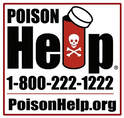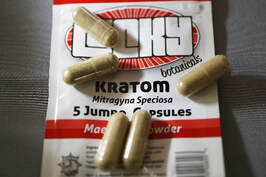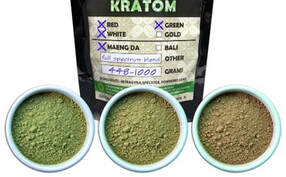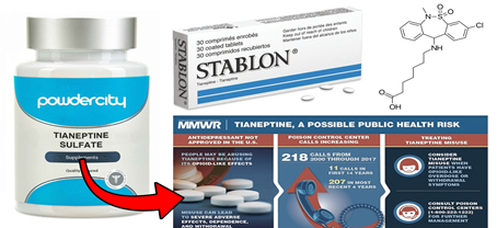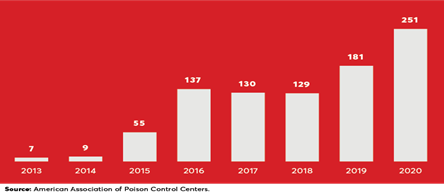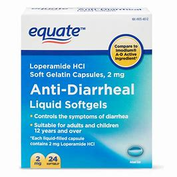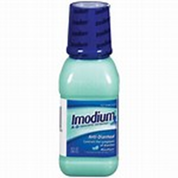The dangers of substance use and abuse have been historically documented and discussed at the local, state, and federal level. We often hear of the more commonly abused drugs like Alcohol, Cannabis, Opioids, Methamphetamines, Cocaine, Tobacco, MDMA, etc., with good reason; the more we educate our communities, the more opportunities we have to improve health outcomes for our residents. Pivital Public Health Partnership is committed to raising awareness, increasing education, and reducing stigma around substance use disorders and recovery. Part of Pivital’s mission to increasing awareness and education include providing information around some of the commonly abused substances that are not currently scheduled as controlled substances, by the DEA, and are easily accessible for purchase through the internet, headshops, or gas stations.
While we recognize that our world is living through unprecedented times, and respect there being many roads to wellness/recovery, there is concern around products marketed as “all natural” and “safe” methods to reduce anxiety/depression, manage withdrawal from other substance(s), and improve cognitive functioning. Many of these substances can be addictive, cause bodily harm, exacerbate existing medical conditions, and in some cases, be lethal.
Pivital remains diligent in efforts to educate our community members of the potential risks associated with utilization of these products. This is only a snapshot of the available substances within our community. We encourage further exploration and understanding through the utilization of evidence-based sites. Should you have any questions, please direct them to the Program Manager of Substance Use and Mental Health, Katie Basu, at [email protected]
If you or someone you know has ingested and unknown substance, please seek immediate help through dialing 911. In a non-life-threatening situation, you can also reach out to the National Poison Control Hotline.
Lesser Known Commonly Abused Substances
Kratom (Common names: Thang, Biak, Kakuam, Ketum, Thom)- According to National Institute on Drug Abuse, Kratom derives from a tropical tree native to Southeast Asia with leaves that can have psychotropic effects. Kratom is used as a pill, capsule, or extract. At times, people chew the leaves or mix them in with food, dry and brew them into a tea, or smoke them. Compounds in Kratom interact with both Opioid receptors and other receptors that change the outcome based on the amount of use. In small doses, Kratom reportedly increases energy, or alertness. In larger doses, it can produce sedation, pleasure, reduce pain, and increase a euphoric effect that can mimic the effects of Opioids. Additionally, some companies market this as a substance to help alleviate withdrawal or as a “safer” alternative to “harder drugs”. Some reported side effects include nausea, itching, sweating, dry-mouth, constipation, increased urination, decreased appetite, seizures, hallucinations, psychosis. *There is no scientific evidence that Kratom is effective or safe to control withdrawal symptoms and cravings caused by addiction to other substances.
Kratom (Common names: Thang, Biak, Kakuam, Ketum, Thom)- According to National Institute on Drug Abuse, Kratom derives from a tropical tree native to Southeast Asia with leaves that can have psychotropic effects. Kratom is used as a pill, capsule, or extract. At times, people chew the leaves or mix them in with food, dry and brew them into a tea, or smoke them. Compounds in Kratom interact with both Opioid receptors and other receptors that change the outcome based on the amount of use. In small doses, Kratom reportedly increases energy, or alertness. In larger doses, it can produce sedation, pleasure, reduce pain, and increase a euphoric effect that can mimic the effects of Opioids. Additionally, some companies market this as a substance to help alleviate withdrawal or as a “safer” alternative to “harder drugs”. Some reported side effects include nausea, itching, sweating, dry-mouth, constipation, increased urination, decreased appetite, seizures, hallucinations, psychosis. *There is no scientific evidence that Kratom is effective or safe to control withdrawal symptoms and cravings caused by addiction to other substances.
Tianeptine (Common names: Tianna, Za Za)- According to the FDA, Tianeptine is an a-typical antidepressant, that was once commonly used overseas, but has not been approved as an antidepressant in the United States. Tianeptine activates different opioid receptors in the brain, which may increase a Dopamine (feel good chemical) in one’s brain. At the same time, this could also create a euphoric effect, like other substances, which increases the potential for abuse. Tianeptine is typically marketed as a “Nootropic” or “smart drug”, which are touted for cognitive enhancing qualities, anxiety reduction, and an organic, non “big pharma” means to “feel better”. They are also sometimes marketed as a replacement treatment for Opioid addiction. Some of the adverse effects of Tianeptine include: Cardiovascular, Neurological, and Gastrointestinal impacts. Further, effects can mimic the process of Opioid toxicity and withdrawal. Tianeptine is most commonly purchased online, in head shops, and gas stations, and can be sold as a capsule, tablet, or power. The most common route of use is oral and IV injection. Tianeptine has been banned, in some locations worldwide, and is not regulated by the FDA, at this time. It is currently classified (and banned) as a schedule II-controlled substance in Michigan. The CDC has raised alarm that Tianeptine may be an “emerging public health risk” (Morbidity and Mortality Weekly Report https://doi.org/10.15585%2Fmmwr.mm6730a2)
Lopermide (Common names: (OTC: Imodium) Lope Dope, Poor Man’s Methadone) Lopermide is an over-the-counter anti-diarrheal medication that can cause euphoria, when taken in higher than recommended doses, according to NIDA. These can be found in drug stores, grocery stores, gas stations, etc., and come in tablet, capsule, and liquid form. Some of the side effects can include fainting, stomach pain, constipation, cardiovascular toxicity, drowsiness, dizziness, and renal failure. Taken in large doses, over an extended period of time can also cause extreme anxiety, vomiting, and diarrhea from withdrawal. Many take this in conjuncture with other substances such as alcohol or marijuana, which intensify the side effects, and increase associated risks.

